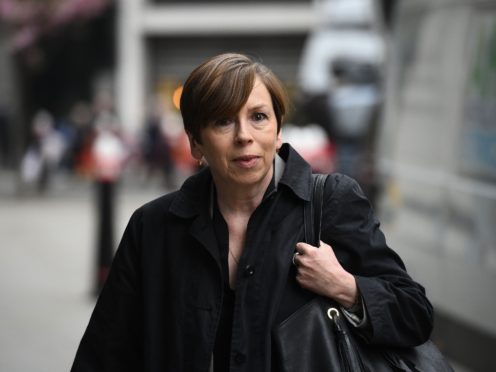BBC News staff have been reminded not to share their personal views on social media, and told those who breach the rules will face “appropriate action”.
In an email sent to staff, director of news and current affairs Fran Unsworth told employees to refrain from expressing political views and criticising their colleagues on social media.
The letter came after a number of staff criticised the broadcaster for its treatment of an LGBT debate on Question Time.
Unsworth wrote: “We all have personal views, but it is part of our role with the BBC to keep those views private.
For clarity, here is Fran Unsworth’s email about social media use by BBC News staff. pic.twitter.com/9qZsfEcGlL
— BBC News Press Team (@BBCNewsPR) April 4, 2019
“Our Editorial Guidelines say BBC staff must not ‘advocate any particular position on a matter of public policy, political or industrial controversy, or any other ‘controversial subject’.”
She warned that ignoring the rules risks “undermining the BBC’s reputation, particularly given our renewed focus on impartiality”.
It comes a week after some BBC staff, including BBC Breakfast presenter Ben Thompson and BBC presenter Sue Perkins, were critical of an episode of Question Time in which an audience member asked panellists: “Is it morally right that five-year-old children learn about LGBTQ+ issues in school?”
Unsworth did not refer to the Question Time row in her letter but reminded staff “don’t criticise your colleagues”, and not to “sound off about things in an openly partisan way”.
I, for one, have emailed Fran Unsworth to express my absolute bafflement and rage about this, and I hope my other BBC colleagues, gay or straight, will do likewise.
— Declan Cashin (@Tweet_Dec) April 4, 2019
Following the publication of the letter, BBC Three duty editor Declan Cashin retweeted a post that said: “Believing that LGBT people are humans is not a ‘political view’.”
He wrote: “I, for one, have emailed Fran Unsworth to express my absolute bafflement and rage about this, and I hope my other BBC colleagues, gay or straight, will do likewise.”
BBC digging deeper. Imagine telling LGBT staff that defending their mere existence being taught in schools is taking a political stance. What next @bbcpress? Total disgrace. https://t.co/wQNSzfjAoj
— Wes Streeting MP (@wesstreeting) April 4, 2019
Labour MP Wes Streeting tweeted: “BBC digging deeper. Imagine telling LGBT staff that defending their mere existence being taught in schools is taking a political stance. What next @bbcpress? Total disgrace.”
A BBC spokeswoman said: “This was a general reminder to all BBC news staff about social media guidelines and made no mention of LGBT issues.”
Following the Question Time episode last Thursday, BBC Breakfast’s Thompson tweeted: “LGBT ‘issues’? Like what? That we exist? One of them, RIGHT HERE, is on your TV every morning.
LGBT ‘issues’? Like what? That we exist? One of them, RIGHT HERE, is on your TV every morning. I held back on this, hoping it was clumsy writing, done in haste. But it’s still online. Would you ask if it’s ‘morally right’ to learn about gender/race/religion/disability ‘issues’? https://t.co/V24tHo39w1
— Ben Thompson (@BBCBenThompson) March 29, 2019
“I held back on this, hoping it was clumsy writing, done in haste. But it’s still online. Would you ask if it’s ‘morally right’ to learn about gender/race/religion/disability ‘issues’?”
At the time, Perkins tweeted that “the framing of this question is deeply worrying”.
Holby City actor David Ames described the question’s phrasing as as “not only insulting but damaging”.
